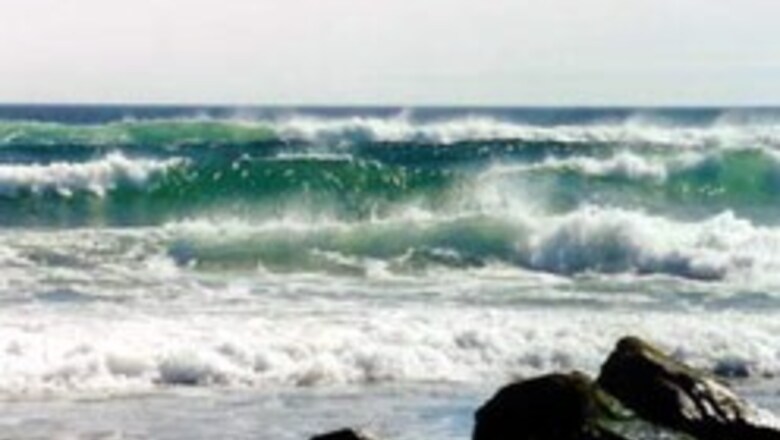
views
Moscow: Climate change on the planet may make the Arctic Ocean ice-free by 2050, a top Russian expert has said.
"In 30-40 years, the Arctic may have no ice in the summertime, including the North Pole," Director of the Russian Meteorological Centre Alexander Frolov said.
Quoting data from an Intergovernmental Panel on Climate Change (IPCC) report, Frolov said level of shrinking of ice cap in 2010 could exceed the 2007 record.
"The average level is a matter of past. The previous minimum was about 11 million square kilometres of ice. Currently satellites show around 10.8 million square kilometres," Frolov was quoted as saying by RIA Novosti.
Media reports say Moscow and Washington are discussing cooperation in Arctic at the highest political level. Russia and Canada would also soon start negotiations on the integration of their national space systems to monitor the Arctic.
Anatoly Shilov, Deputy Chief of the Federal Space Agency, said Russia would spend USD 2 billion for the creation of multipurpose space system Arktika (Arctic) to monitor climatic changes and survey energy resources in the Arctic region.
The proposed satellite system will also monitor the weather and environment of the North Pole, pinpoint hydrocarbon deposits on the Arctic shelf, provide telecommunications over the hard-to-access areas and ensure safe air traffic and commercial shipping in the region.
Shilov said the first Russian and Canadian satellites could be orbited in three years, while the system "should be up and running in no less than six to seven years."
The vast hydrocarbon deposits that will become more accessible due to melting of ice have put the Arctic on the centre stage of geopolitical wrangling between the United States, Russia, Canada, Norway, and Denmark.
Under international law, each of the five Arctic Circle countries has a 322-kilometer (200-mile) exclusive economic zone in the Arctic Ocean.
However, under the United Nations Convention on the Law of the Sea, if a country can show its continental shelf extends beyond the 200-mile limit, it can claim right to more of the ocean bed.
Russia, which has rejected the US proposal of Antarctica like access for all, has undertaken two Arctic expeditions - to the Mendeleyev underwater chain in 2005 and to the Lomonosov Ridge in the summer of 2007 - to substantiate its territorial claims in the region and spend USD 50 million to define its submerged frontiers.




















Comments
0 comment